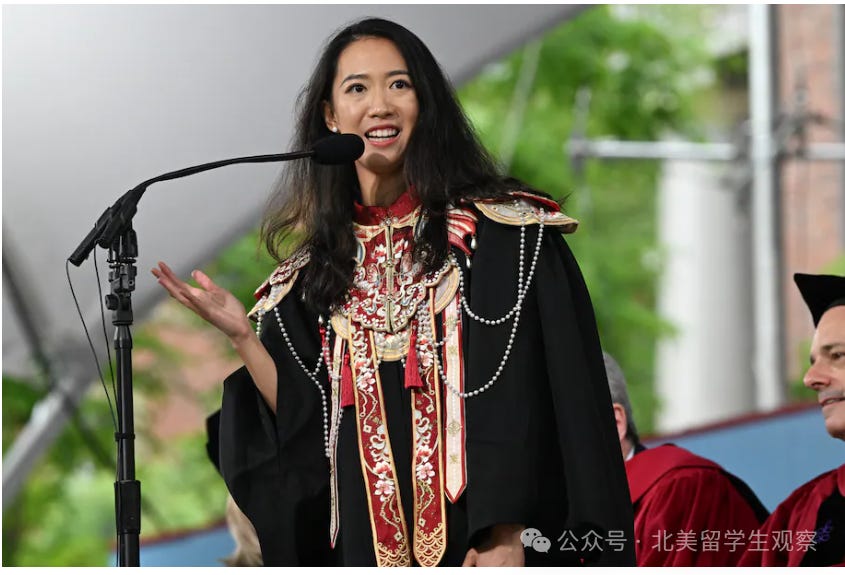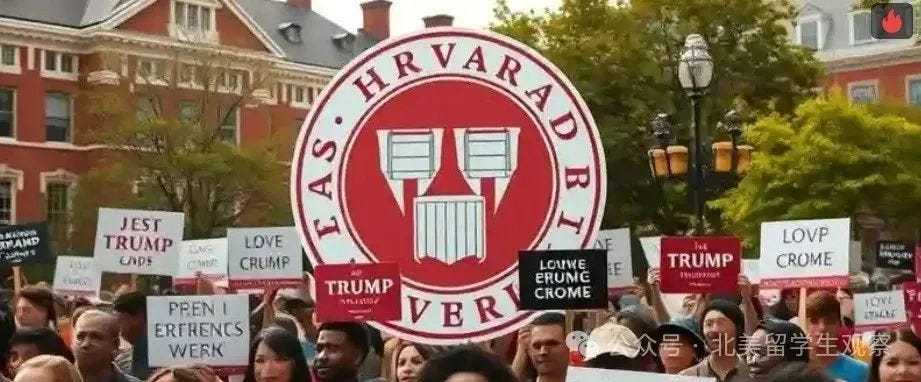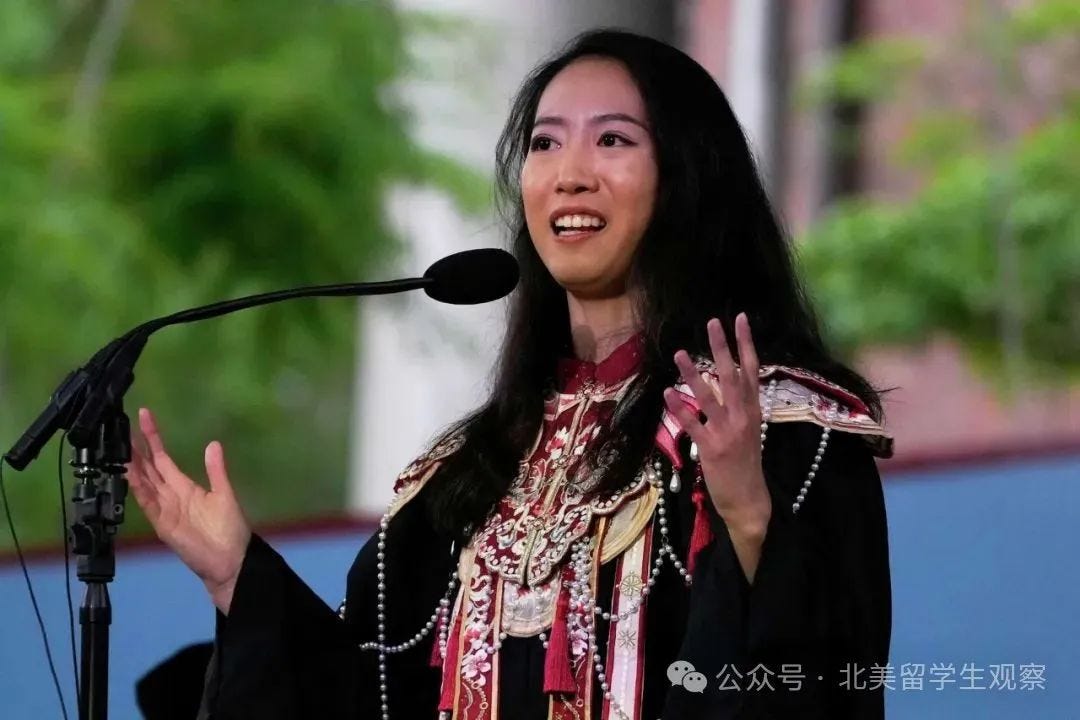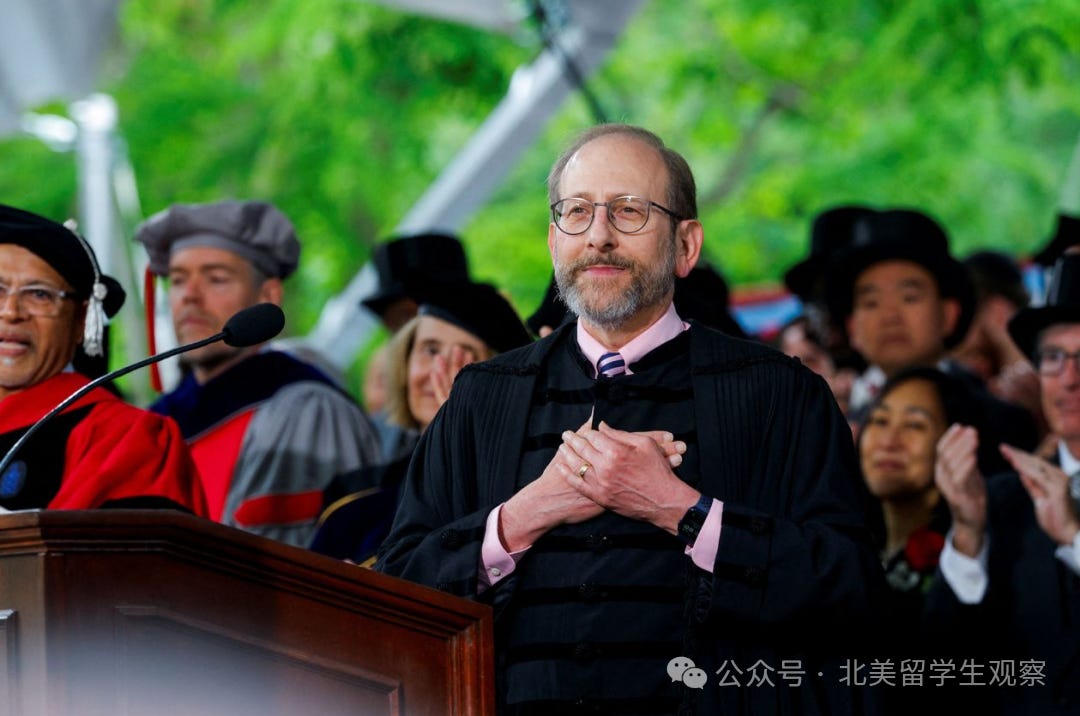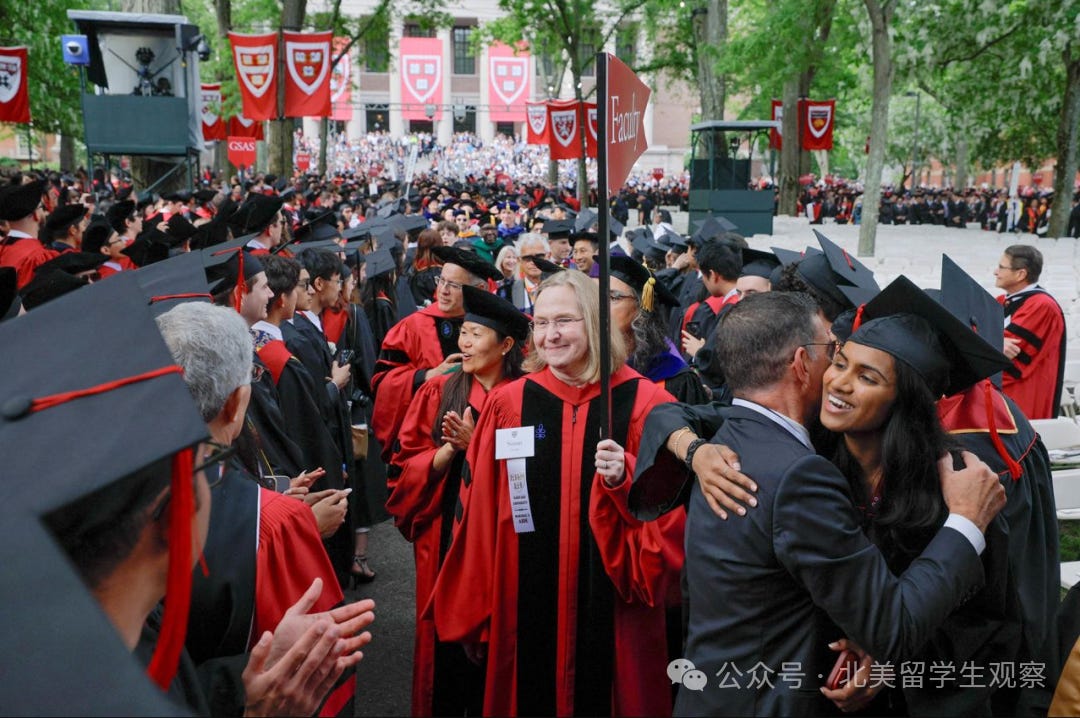Yurong “Luanna” Jiang’s Historic Address Caps Harvard’s Triumph Over Trump
On May 29, 2025, as Harvard University secured a landmark court victory halting the Trump administration’s order to revoke its international‐student enrollment certification, the University’s 2025 Commencement unfolded with both relief and resolve. Moments after Judge Allison Burroughs granted a preliminary injunction that preserved Harvard’s ability to admit and retain international students, Master in Public Administration graduate Yurong “Luanna” Jiang stepped to the podium and delivered a seven‐minute address that moved the entire audience to its feet.
A Courtroom Victory and a Commencement Like No Other
Earlier that morning, the U.S. District Court in Boston ruled that the Department of Homeland Security could not alter Harvard’s Student and Exchange Visitor Program (SEVP) certification until the case reached a final decision. The injunction ensured that all admitted international students—including those from China—would retain their visas and legal status, allowing them to walk across Harvard Yard that afternoon without fear of deportation or disenrollment.
Humanity, Not Politics, at the Heart of Her Message
Representing all graduating students, Jiang became only the second Chinese delegate in nine years—and the first Chinese woman ever—to deliver Harvard’s student commencement speech. Under the title “Guarding Our Humanity,” she eschewed grand political narratives in favor of personal vignettes that illustrated our shared global destiny:
“Last summer, I was interning in Mongolia when classmates in Tanzania called me with an urgent question: how do you use a washing machine whose labels are all in Chinese? An Indian and a Thai student dialing a Chinese student in Ulaanbaatar—because we all study together here at Harvard.”
She reminded her peers that true solidarity transcends borders and ideologies:
“If any girl is forced to leave school because she cannot afford a sanitary pad, my dignity is diminished. If a child dies in a war he did not start, part of me dies with him—because we can still feel each other’s pain.”
In closing, she spoke in Mandarin of her program’s guiding principle—Humanity:
“We do not rise by proving each other wrong; we rise by refusing to let one another go.”
The Yard fell silent, then erupted in a sustained standing ovation.
A President’s Words, a University’s Stand
Harvard President Alan Garber, who has twice led the University in lawsuits against the administration, offered a brief response from the stage:
“Welcome, Class of 2025—from across the United States and around the world—just as it should be.”
His assertion drew another minute of applause, underscoring Harvard’s conviction that international scholars are indispensable to its academic mission.
The Broader Context: Higher Education Under Fire
This Commencement marked the end of Harvard’s most turbulent academic year in decades. Beyond the threatened SEVP revocation, the administration had frozen some $3 billion in federal research funding and publicly denounced the University as an “ideological hotbed,” even proposing that international students be capped at 15 percent of the student body.
Yet in the face of political pressure, Harvard’s leadership and community reaffirmed their commitment to global engagement. At the Kennedy School of Government, nearly half of all students hail from overseas; in the School of Public Health, international students account for more than 40 percent. Across graduate programs, scholars from around the world form the backbone of Harvard’s research and teaching enterprise.
A Resonant Call for Parents and Future Scholars
Jiang’s speech resonates far beyond Cambridge. For families weighing the uncertainties of study‐abroad plans, her words are a powerful reminder: although political storms may rage, the doors of education need not—and will not—close permanently. As long as students, parents, and institutions continue to advocate for openness and mutual understanding, the promise of a truly global education endures.


